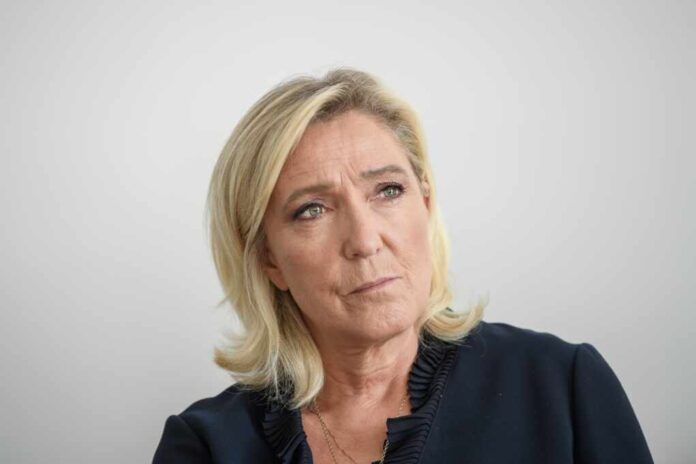
Right-wing politician Marine Le Pen and 27 fellow members of the French National Rally (RN) political party — formerly the National Front party — are set to face trial over charges they misused European Union (EU) funds. Le Pen and the RN members categorically deny the allegations of wrongdoing. The upcoming trial process raises questions about the motivations behind the prosecution and the potential impact on French politics.
The criminal investigation into RN started in 2016, when RN was still known as the National Front. Investigators reportedly looked into whether party officials misappropriated funds allocated by the EU intended for parliamentary assistants on spending for the party’s political expenses. The resulting charges have placed Le Pen in the center of the legal storm, captivating public attention in France.
French judges have ordered former presidential candidate Marine Le Pen to stand trial alongside 26 other members of her National Rally party for allegedly misusing EU funds to hire staff in France https://t.co/Sua3NTQ2mJ https://t.co/Sua3NTQ2mJ
— The Wall Street Journal (@WSJ) December 8, 2023
The RN has issued statements denying any misuse of public EU funds. “We formally contest the accusations made against our MEPs and parliamentary assistants,” reads a party media release. It emphasizes that the party’s spending has always complied with the letter and the spirit of EU regulations and French law. As in many spending disputes, the outcome will likely come down to how the court interprets the applicable rules and laws.
Le Pen and other officials face the possibility of heavy fines and prison time if convicted of the charges. A conviction could also legally disqualify Le Pen from holding any public office for up to ten years, effectively ending her political career. She has been a prominent figure on the political right in France, finishing as a strong runner-up in previous national presidential elections.
Recent European political developments indicate a surge in support for right-wing parties, particularly those focusing on stemming immigration. Right-wing parties have been gaining traction in countries like Hungary and Poland for years. Hungary, under Prime Minister Viktor Orban, and Poland, with the Law and Justice party leading in polls, exemplify this shift. In both nations, the right-wing parties have introduced policies and rhetoric that reflect nationalist sentiments and a strong stance against unchecked immigration.
The trend is not isolated to Eastern Europe. Right-wing parties like the Dutch PVV, led by Geert Wilders, have also made significant electoral gains in the West. Wilders and his party are known for an explicit anti-EU stance and a strong emphasis on controlling immigration.
This political landscape sets a challenging context for politicians like Marine Le Pen in France, who are perceived by the political left as threatening their power. The growing support for right-wing parties across Europe, focusing on issues like immigration, indicates a shift in the political equilibrium, potentially weakening the influence of traditional liberal and centrist parties.
Many conservative critics of the prosecution of RN argue the charges are politically motivated and are, in fact, acts of election interference to stifle the ability of citizens to vote for policies and candidates of their choosing. The situation calls to mind the multiple politically motivated prosecutions underway in the U.S. against President Donald Trump as he campaigns for another term in the White House in next year’s election.

































